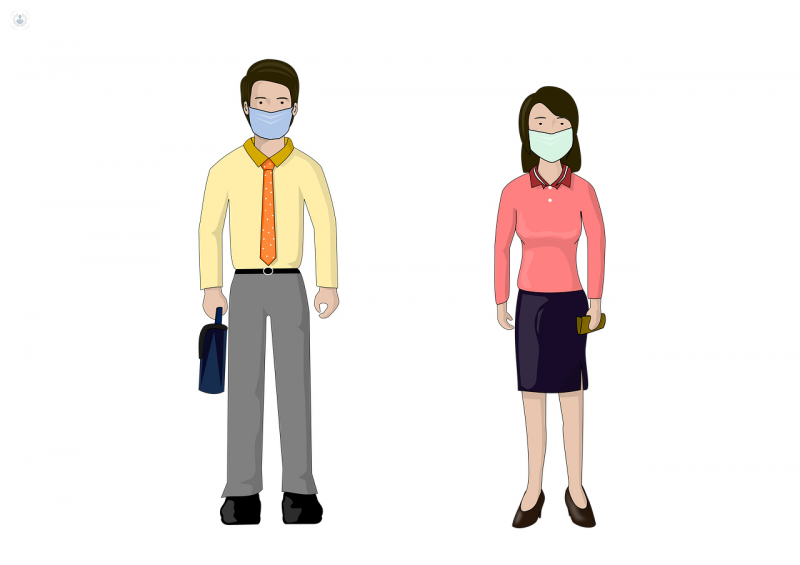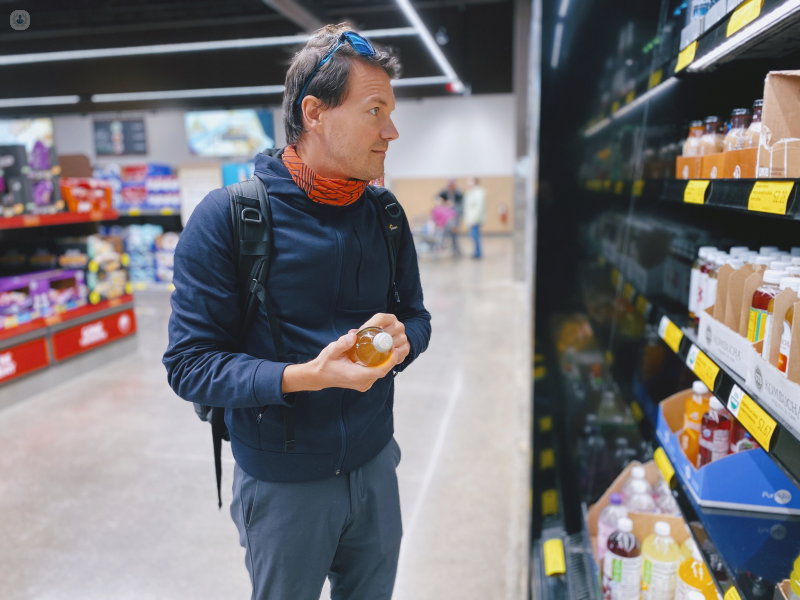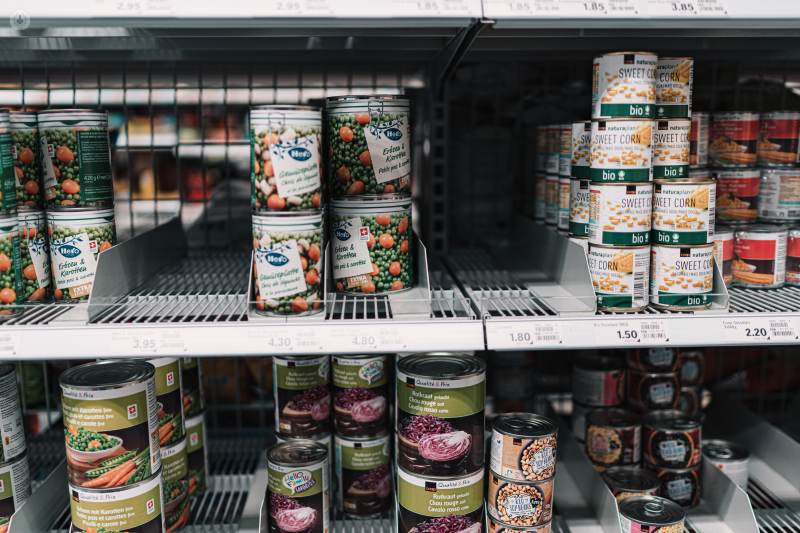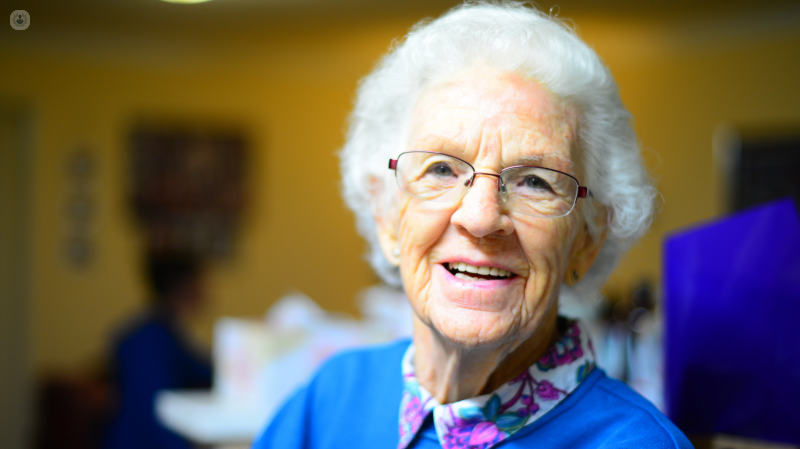How to shop for food safely during the COVID-19 pandemic
Autore:Shopping for essential supplies can be a little tricky during the current lockdown, so here at Top Doctors, we’ve gathered some fact-based tips to help you shop safely.
In this article, we highlight how you can avoid contracting coronavirus and how you can help to stop the virus from spreading, during and after a trip to the supermarket.
1. Stay 2 metres away from staff members and other customers
Ensure you stay clear of people on the way to and from the supermarket and in general during your shopping trip. Some supermarkets are helping with this by limiting the number of people who can enter a store at any given time. Try to also keep a distance from surfaces that may have been handled by people in the store.
Also, do not forget to avoid touching your eyes, mouth and nose until you’ve washed your hands. Some stores are providing hand sanitiser and are cleaning shopping trolleys and baskets between customers.

2. Shop alone
There are exceptions, if you’re a single parent with small children who cannot be left alone. By shopping alone, you reduce the number of people inside the store, making physical distancing much easier to achieve. It also reduces the number of people from your home exposed to the outdoors. On average, people have coronavirus for five days before they develop any symptoms and so therefore, during that time, you can spread the virus without even knowing.

3. Only buy essential things you need
It’s natural that people worried about being stuck indoors self-isolating will want to stock up on supplies but we should consider that panic-buying can result in shortages of medical products or food shortages for others. Remember, some foods last longer than others so it may be advised to buy non-perishable food items such as canned food. Longer lasting food may mean fewer trips to the supermarket, which ultimately means less potential exposure to COVID-19.

4. Be mindful of others, respect shopping hours for healthcare workers and the vulnerable
Many supermarkets are setting aside certain hours of the week, specifically for shopping to be carried out by key workers and those who are more vulnerable such as the elderly. While it may be difficult, avoid coming into contact with these groups when shopping.

5. Use delivery services available by supermarkets
The less amount of people on the streets and in the shops means there will be less chance of spreading coronavirus to other people. This will help slow and ease the peak of infections in the population that scientists and politicians worry will overwhelm health services.
If you can get products delivered, this will reduce the number of times you will have to leave the house. If you have a compromised immune system or if you’re 60 years or older it may be a good idea to have your groceries delivered as it will mean you will be in contact with less people who could potentially pass the virus on to you.
Links to some supermarkets’ delivery services:
Please note due to the current circumstances certain supermarkets may not be able to offer online orders.
What should you do when returning home from the supermarket?
When you get home, wash your hands thoroughly for at least 20 seconds with water and soap. It is recommended to put your keys and wallet in a box by the entrance to avoid touching them until next time you leave the house. Clean your mobile as well as eye glasses and any other objects you may use at home. On the Apple website, they have stated that iPhones can be disinfected using a 70% isopropyl alcohol wipe and this was also recently reaffirmed by Jagdish Khubchandani, a professor of health science at Ball State University in the US who has said to use “wipes with at least 70% alcohol” to disinfect phones as you “can’t really use soap and water”.
Take off your shoes and leave them at the entrance, that way you can avoid contaminating your home. Take off outer garments that may have been in contact with the virus and put them in a plastic bag for them to be washed. Wash your hands thoroughly for at least 20 seconds with water and soap.
Any surfaces your shopping bags touch, you should disinfect. Wash your hands thoroughly after storing food. Experts also advise to frequently clean high-touch surfaces in your home, including light switches and door knobs.
Should I disinfect food during the COVID-19 pandemic?
Coronavirus is not thought to be transmissible through food but it can live for several days on the materials used to package food. Preliminary research has highlighted that it can survive on cardboard for 24 hours and on plastic for 72 hours. However, the amount of the virus also declines quickly during that time period.
The US Centers for Disease Control has stated it does not recommend disinfecting packaging. Julia Marcus, an infectious disease epidemiologist and professor in the department of population medicine at Harvard Medical School, has stated, “better than disinfecting, the thing we keep saying over and over again is to just wash your hands.”
According to Marcus, “at this point, there’s no evidence that transmission is happening through food packaging”. Despite this, the “virus can remain viable on surfaces for hours or even days, so there’s a hypothetical risk of transmission through touching a contaminated surface and then touching your eyes, nose or mouth.”
The US government recently provided a list of cleaning products that can kill the virus, however, most of them should not come into contact with food.
Food safety experts have also stated that food should only be washed with water and not household dish soap.


